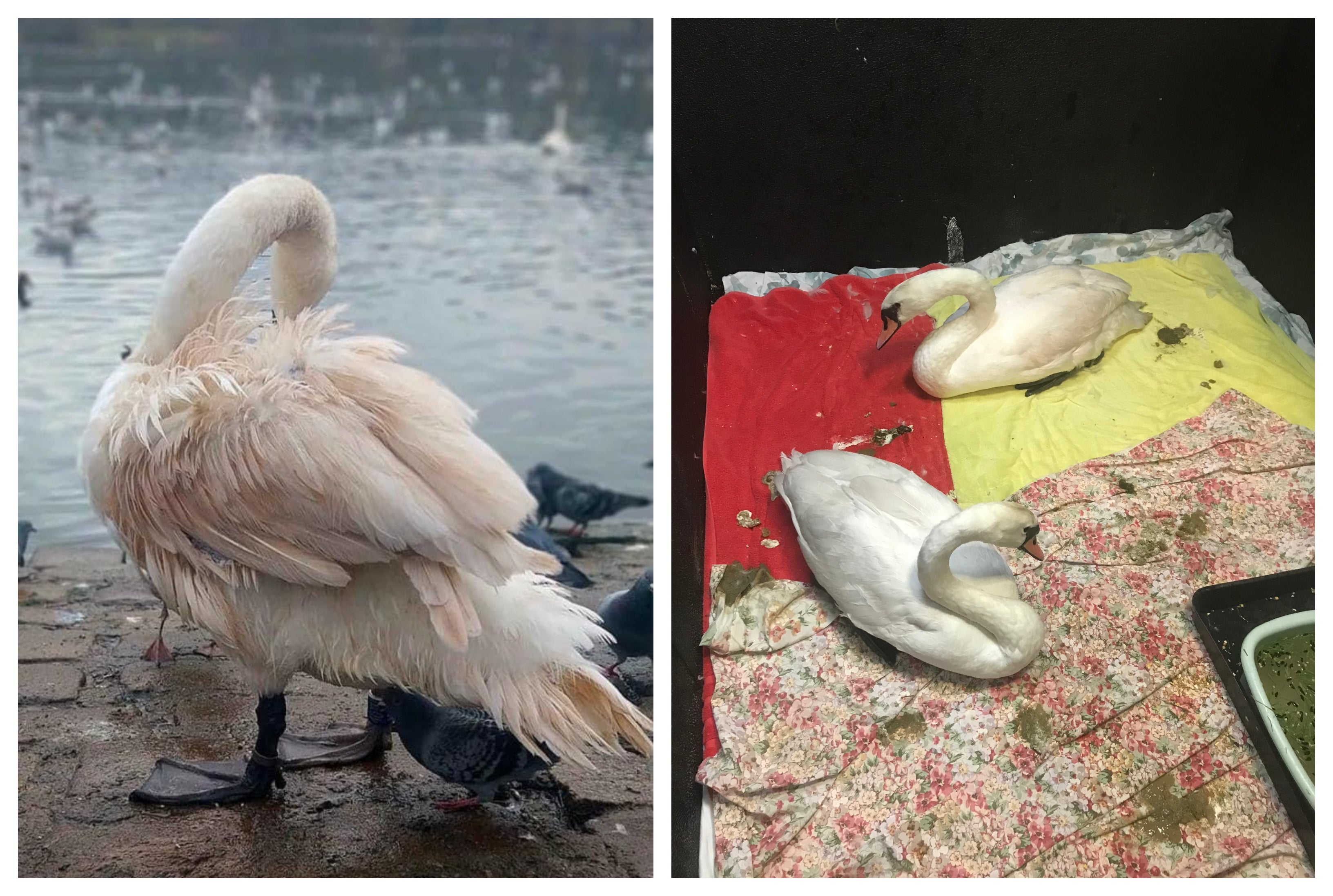RSPCA warns swans are turning pink because park visitors keep doing one thing
Two affected swans were cleaned up and released
Park visitors have been urged to stop feeding swans bread after several of the protected birds turned pink because they ate mouldy crumbs left in the water.
Visitors to Moses Gate Country Park in Bolton called the RSPCA after spotting the bevy of swans looking tickled pink.
The charity said the group of birds were suffering from “pink feather syndrome”, which can result in swans struggling to swim and fly.

The condition is caused by a fungus which occurs when bread starts to decay in water.
People are being urged to feed the protected birds cabbage, spinach and lettuce or bird seed instead of bread.
RSPCA animal rescue officer Stephen Wickham, who collected the swans, said: “We know how much people enjoy feeding swans, ducks and geese, however, it’s important to make sure they are given the right food.
“Unfortunately, bread fills them up without giving them the nutrients they need and it can affect their health.
“We’d encourage people to offer them finely chopped greens, such as cabbage, spinach and lettuce, as well as mixed corn, grain, wheat or bird seed.
“Any feeding should also be done in moderation and only as a supplement to their natural diet.”
Join our commenting forum
Join thought-provoking conversations, follow other Independent readers and see their replies
Comments
Bookmark popover
Removed from bookmarks